When travelling in Japan, where you stay overnight, and the type of accommodation you pick are very important. In this article, we will introduce some basic knowledge about accommodations that you should know to help you make the right choice according to your travel budget and preferences. We hope it comes in useful for planning a fun trip to Japan!
Table of Contents
- Classification of Accommodation Types by Japan Tourism Agency
- Japanese Business Hotels (ビジネスホテル)
- Japanese Luxury Hotels (高級ホテル)
- Common Lodgings (簡易宿所) in Japan
- Summary
Classification of Accommodation Types by Japan Tourism Agency
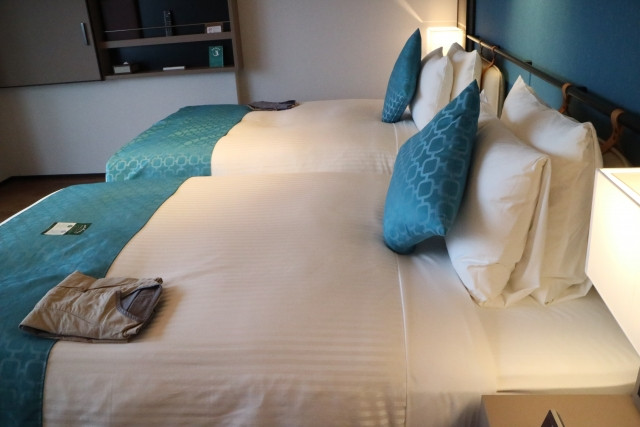
The Japan Tourism Agency under the Japan Ministry of Land, Infrastructure, Transport and Tourism (MILT) has, in an Overnight Travel Statistics Survey, divided the types of accommodation across Japan into 3 categories of ryokans, hotels, and common lodgings. These categorizations can be used as reference for understanding the concept of accommodations for a trip to Japan.
Ryokan/Inns (旅館)
Mainly Japanese-style (和式) accommodation with traditional Japanese buildings, facilities and service that are not common lodgings, and accommodate guests for a fee.
Hotel (ホテル)
Mainly Western-style (洋式) accommodation and facilities that are not common lodgings, and accommodates guests for a fee.
-
Resort Hotel (リゾートホテル): A hotel that mainly targets tourists and visitors, and is built within a resort area.
-
Business Hotel (ビジネスホテル): A hotel that mainly targets business travellers (people on business trips).
-
City Hotel (シティホテル): A hotel that is neither a resort hotel or business hotel, and is built in the city.
Common Lodging (簡易宿所)
Mountain hut, capsule hotel, guest house and the like accommodation and facilities that are mainly to be shared by a large number of people, and accommodates guests for a fee.
【Note】Accommodations that do not fall into the categories of Ryokan/Inn (旅館) or Hotels (ホテル) will be classified as common lodgings. Business licences must be obtained at the prefectural level on the condition that the facilities’ standards for “common lodging” satisfies the standards as stipulated in the Inns and Hotels Act (旅館業法) and the Inns and Hotels Act Enforcement Ordinance (旅館業法施行令). However, in the case of private lodging (民泊), if the number of guest stays is less than 180 days per year, business owners can apply to Special Zone Private Lodging (特区民泊), Private Lodging Business Act (住宅宿泊事業法) for permission to operate their business (more details below).
※ MILT, “平成 年 宿泊旅行統計調査 記入要領(第1号様式) ” ※ MHLW, “民泊サービスを始める皆様へ ~簡易宿所営業の許可取得の手引き~”
In this article, we will introduce the different types of Japanese accommodations like traditional ryokans, hotels, and common lodgings.
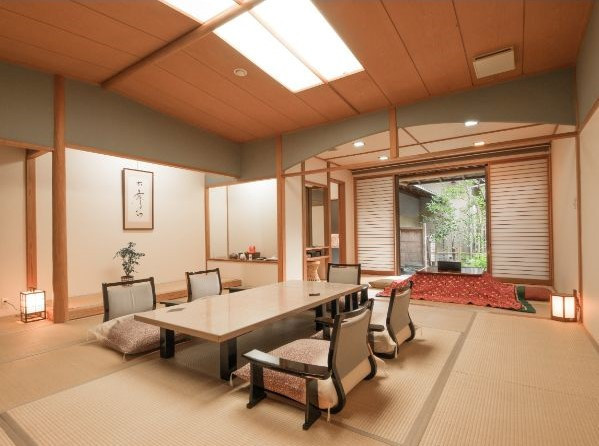
If you are curious about ryokans (Japanese inns), read the article Staying at a Japanese Inn Ryokan, Not Just a Place to Rest but an Experience.
Writer's Pick
Japanese Business Hotels (ビジネスホテル)
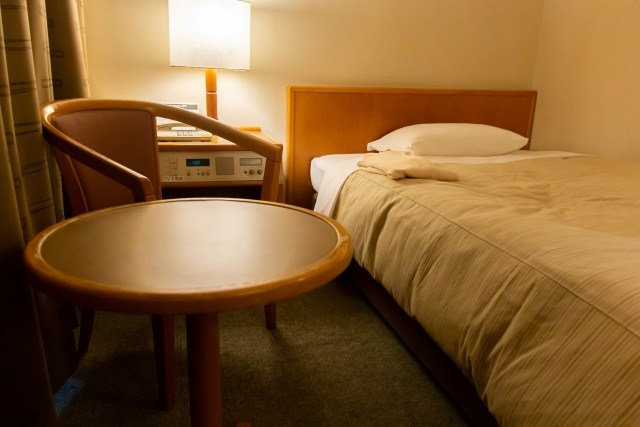
A business hotel is a hotel intended to be used for business purposes, for example business trips. Although written in katakana and sounds English, business hotel is not an English concept but an expression made in Japan, and can be said to be a unique form of Japanese hotels.
Features of Japanese Business Hotels
Many of the beds are single-sized meant for sleeping alone, and the rooms are not very spacious. Minimal to moderate room decorations and facilities means that prices can be kept low, this appeals to travellers elsewhere who are on holiday and not business purposes to save on accommodation costs. However, if you are looking for a more comfortable stay, there are also business hotels that offer high-quality services and facilities at higher prices.
Many business hotels offer complimentary breakfast in the hotel's lobby or restaurant area (some hotels and stay packages may not include breakfast). Breakfast is usually simple just like at home, Japanese traditional breakfast of rice, miso soup, side dishes, etc. is often served, or simply Western breakfast of toast, milk, etc.
Another feature of business hotels in cities is their location right in front or next to train stations.
Famous Japanese Business Hotel Chains
In Japan, there are business hotel chains that operate nationwide. Examples of huge hotel chains include:
-
Dormy Inn (ドーミーイン)
-
APA Hotel (アパホテル)
-
Toyoko Inn (東横イン)
-
Route Inn Hotels (ルートインホテルズ)
-
Daiwa Roynet Hotels (ダイワロイネットホテルズ)
Japanese Luxury Hotels (高級ホテル)
Unlike business hotels where the purpose is simply to rest whilst on a business trip, there are hotels that in addition to simply staying a night, guests also linger at the hotel to rest and relax whilst enjoying the rooms, facilities and services. Conveniently called “high-class hotels” or “luxury hotels”, these hotels are further broken down into “city hotels” and “resort hotels” by the Japan Tourism Agency.
① City Hotel (シティホテル)
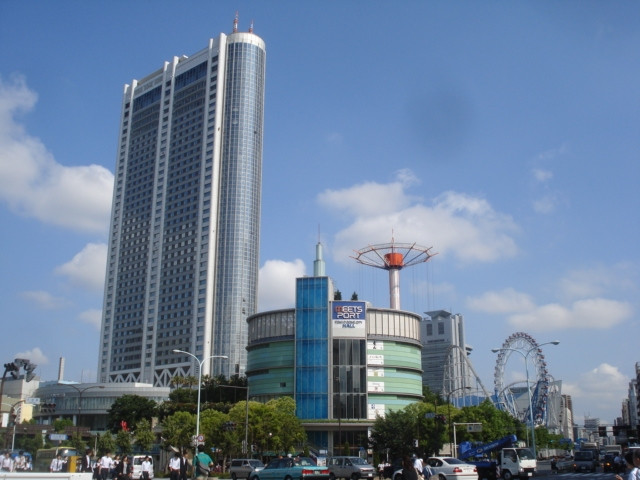
Compared to business hotels which are cheaper, a city hotel that’s built in city centres provides additional facilities, services, etc. to cater not just to guests’ “business” but also various purposes such as travel accommodation, meals, and events like banquets and weddings. There are also city hotels that have restaurants, sports facilities, spas, and suites (special bedrooms with ensuite bathroom and attached living room).
City hotels are not categorised by strict standards but includes a wide range of hotels other than business hotels and resort hotels (introduced below) with a wide variety of facilities, services, and price ranges.
② Resort Hotel (リゾートホテル)
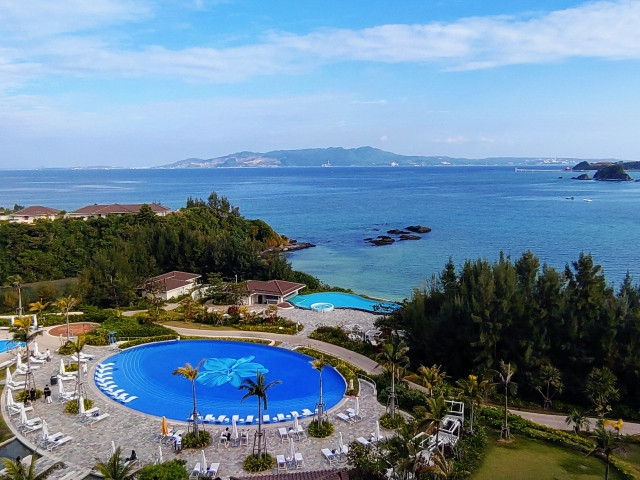
Located in resort areas (リゾート地) rather than in city centres is why these hotels are called resort hotels. They often have swimming pools and spacious grounds, and target tourists. Many of them also have wedding halls, banquet rooms, and restaurant facilities.
In terms of staff, room service, room view, amenities, and hotel facilities, it is not much different from a city hotel. It is clear however from their different classifications that they are differentiated by being a tourist spot and the other located in the city centre.
【Note】5 Star Hotels (5つ星ホテル) in Japan
As of June 2020, the Japan Tourism Agency announced that there are 34 "5 star hotels (5つ星ホテル itsutsuboshihoteru)" in Japan, and announced that it aims to attract more than 50 world-class hotels.
Of the 34 5 star hotels, 21 are in Tokyo, 5 in Osaka, 3 in Kyoto, 2 in Yokohama, 1 in Mie Prefecture, and 1 is in Hiroshima Prefecture.
[5 Star Hotels in Tokyo]
-
The Peninsula Tokyo (ザ・ペニンシュラ東京)
-
Aman Tokyo (アマン東京)
-
Shangri-La Tokyo (シャングリ・ラ 東京)
-
Park Hyatt (パークハイアット 東京)
-
Mandarin Oriental Tokyo (マンダリンオリエンタル 東京)
-
Grand Hyatt Tokyo (グランド ハイアット 東京)
-
Palace Hotel Tokyo (パレスホテル東京)
-
The Ritz-Carlton Tokyo (ザ・リッツ・カールトン東京)
-
Conrad Tokyo (コンラッド東京)
-
The Okura Tokyo (ホテルオークラ東京)
-
Hotel Chinzanso Tokyo (ホテル椿山荘東京)
-
The Capitol Hotel Tokyu (ザ・キャピトルホテル 東急)
-
The Prince Park Tower Tokyo (ザ・プリンス パークタワー東京)
-
Imperial Hotel Tokyo (帝国ホテル 東京)
-
ANA Intercontinental Hotel Tokyo (ANAインターコンチネンタルホテル東京)
-
InterContinental Tokyo Bay (インターコンチネンタル 東京ベイ)
-
Andaz Tokyo (アンダーズ 東京)
-
Four Seasons Marunouchi Tokyo (フォーシーズンズ丸の内東京)
-
The Prince Gallery Tokyo Kioicho (ザ・プリンスギャラリー 東京紀尾井町)
-
Hotel New Otani Tokyo Executive House Zen (ホテルニューオータニ エグゼクティブホテル禅)
-
The Tokyo EDITION, Toranomon (東京エディション虎ノ門)
(A full list of five-star hotels in Japan can be found on Pg. 4 of the PDF below.)
※ MILT, “上質な宿泊施設の整備について” Pg. 2~4 [PDF]
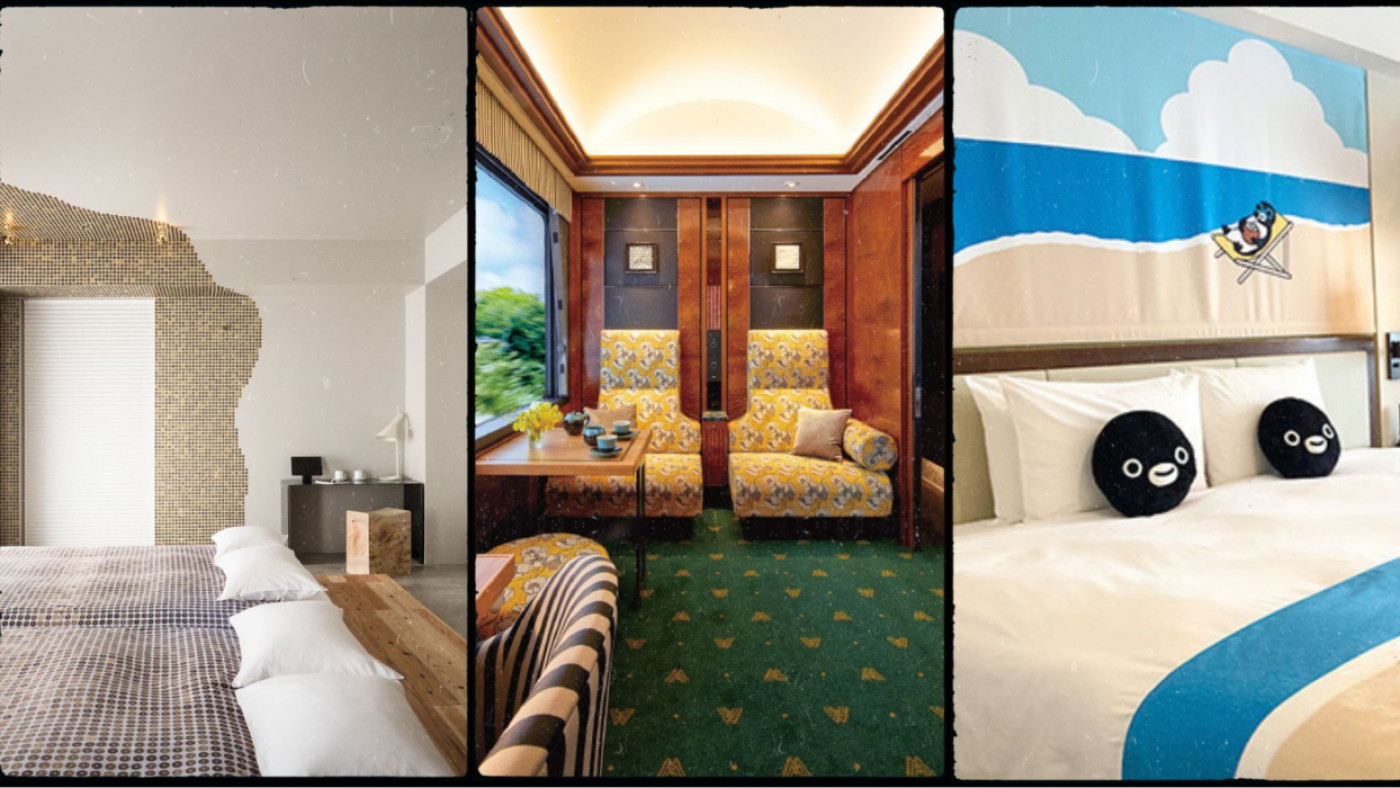
There are many unique hotels in Japan that will make you go, “Wow, there are hotels like these!” Take a look at the different types of Japan’s unique hotels (love hotels, capsule hotels, themed hotels…).
Common Lodgings (簡易宿所) in Japan
Below, we will introduce the different types of accommodations categorized as "common lodgings" in Japan.
① Hostels (ホステル), Guesthouses (ゲストハウス)
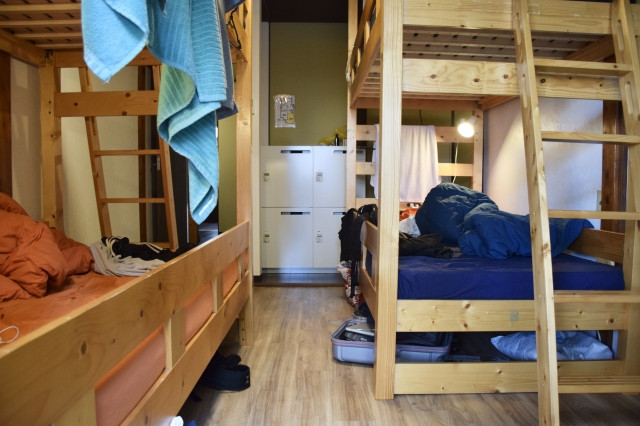
When browsing accommodation options in Japan on a travel site, you will come across not only hotels and ryokans, but also the many guesthouses and hostels that stand out. Some of you may wonder what is the difference between them. We briefly introduced “common lodgings (簡易宿舎)” and the “Inns and Hotels Act (旅館業法)” above, accommodation facility names like guesthouses, hostels, pensions, capsule hotels, etc. are all just that - names for convenience, but actually they all follow the same standards and conditions for business, namely “structure and facilities for accommodation of multiple persons and shared use of facilities”.
However, overseas operating travel website companies have their own standards of classifying accommodations that would fall under the “common lodgings” category in Japan into guesthouses and hostels. Here is an example of the classification on Booking.com as reference.
General Characteristics of Hostels
-
Low-budget accommodation with a shared space for guests interactions (cafe, bar, etc.)
-
Often dormitory rooms (ドミトリールーム)
-
Has a proper front desk
General Characteristics of Guesthouses
-
Small sized operation, usually family run
-
Many of them have no front desk
※ Tabi-labo, “し、し、し、知らなかった...!! ホステルとゲストハウスの違い”
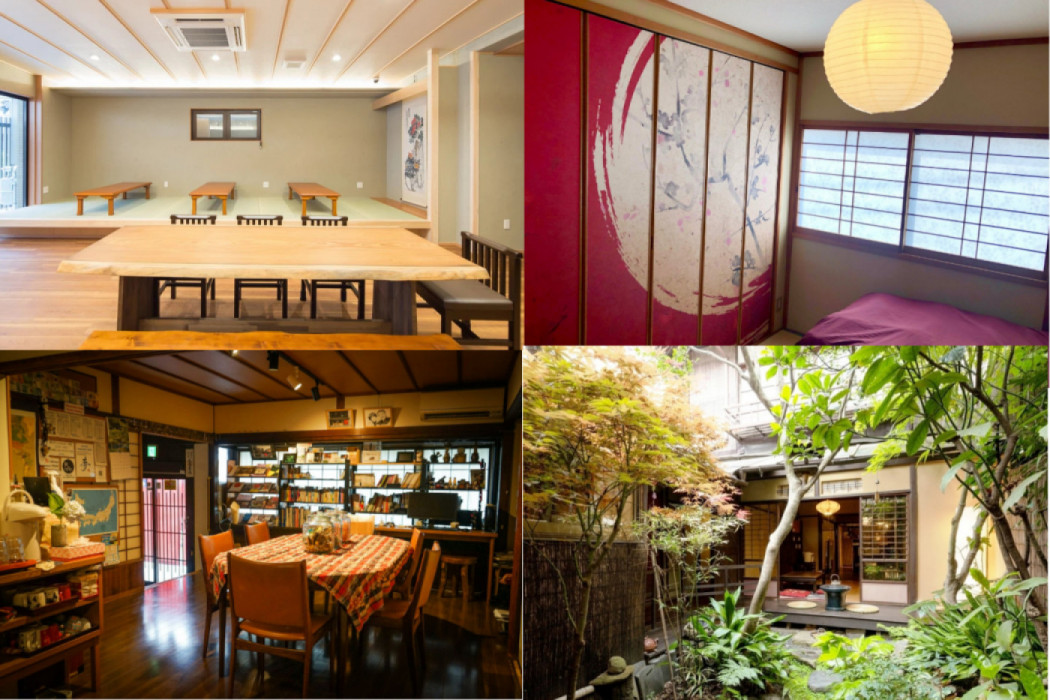
If you are interested in a traditional hostel or guesthouse stay in Japan, please read Fully Enjoy “Kyoto-Style” with 5 Recommendations for Kyoto Hostel and Guesthouses, Experience Japanese Culture in Japanese-style Rooms and Traditional Houses.
② B&B (民宿), Airbnbs, and Private Lodging (民泊)
Some people may consider “Airbnb” or “B&Bs” in addition to hostels and guesthouses as options for trip accommodations to Japan. “Airbnb” is a term coined and used abroad to mean “apartment or room rented through a housing sharing site”. It is said that there is confusion between the two concepts in the United States because the expression “bnb” was taken from the existing “B&B” that stands for “bed & breakfast”, which is a type of accommodation that provides both lodging and breakfast
※ USA Today, “How is an Airbnb different from a B&B? Which is better for your vacation?”
Minshuku (民宿)

An accommodation type that is closest to the concept of B&Bs is Japan’s minshuku (民宿), which is a lodging where the homeowner opens the house in which they reside to guests, providing them with lodging and services. This type of facility's greatest appeal to foreign tourists is the opportunity to experience true Japanese culture and life.
There are many minshuku where you can enjoy homemade Japanese cooking including the area’s local specialty dishes. Although minshuku operate on a small-scale, they must meet the “common lodgings” standards of its relevant prefecture to obtain a permit for operations.
Minpaku (民宿), Airbnb
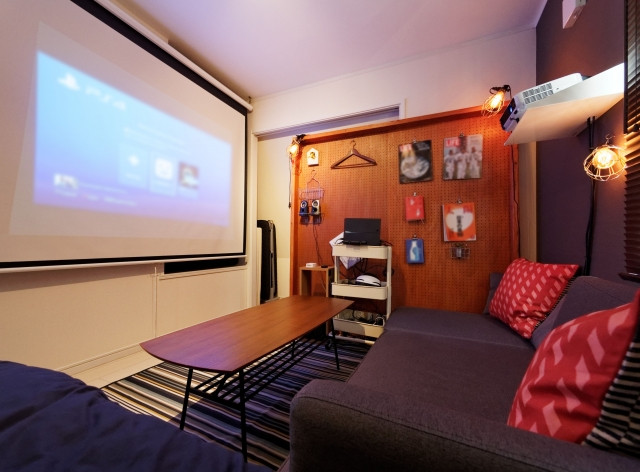
Although not clearly defined under law, minpaku (民泊) in principle refers to "a facility that provides accommodation services to travellers, etc. using all or part of a house".
Minpaku sounds similar to minshuku, but minshuku is a space where the business/homeowner and his/her guests live together. “Airbnb” can be said to be a representative form of minpaku.
【Note】In the case of minpaku, if the number of days of which money is received for guests stays is less than 180 days, one can apply for permission to operate a business under the Private Lodging Business Act (住宅宿泊事業法), also known as the Minpaku New Law (民泊新法), which has a slightly more simple application process than under the Inns and Hotels Act.
By the way, a special system called the Special Zone Private Lodging (特区民泊) system was introduced for places that provide foreign language information and other necessary services. It is currently being implemented in Osaka City, Osaka Prefecture. The conditions for staying at a special zone private lodging is a minimum 3 day - 2 night stay.
※ Minpaku, “はじめに「民泊」とは / What is “Private Lodging”?” “住宅宿泊事業法(民泊新法)とは? / About Private Lodging Business Act (New Private Lodging Business Act) ” “特区民泊について/ Special Zone Private Lodging”
Summary

There are various types of accommodation facilities in Japan. In the case of a business that receives money in return for providing accommodation services, they require application and permission to operate in accordance with applicable laws and regulations for each type of facility. Enjoy a trip to Japan by making the most of a variety of accommodations in Japan, from luxury hotels to comfortable home-like lodgings, to reasonably priced business hotels, and indulge yourself in Japan’s culture and atmosphere.


















.png)

.jpg)













